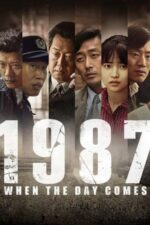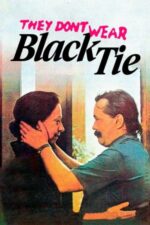The Shadow of the Boot: Cinema & Military Dictatorship
There's something deeply unsettling about films that depict societies under the iron fist of military dictatorship. It’s not just the violence, though that’s certainly present; it’s the insidious erosion of hope, the constant fear, and the way everyday life becomes a tightrope walk between survival and defiance. I think we all have a visceral understanding of oppression now, thanks to events unfolding globally – but cinema has long been a powerful tool for confronting these realities, often at great personal risk for those involved in its creation.
What’s fascinating is how filmmakers approach this subject matter. It's rarely about straightforward action hero narratives; it’s about the psychological toll, the moral compromises, and the quiet acts of resistance that keep humanity flickering even under the darkest regimes. Take Bestia, for example. The film’s focus on a secret police agent in 1980s Chile, framed through his relationship with his dog, is utterly brilliant. It's not about grand political statements; it’s about the slow unraveling of a man forced to participate in brutality, and the desperate search for connection – even with an animal – as a lifeline against despair. It reminds me a little of Apocalypse Now, but instead of the jungle madness, we have the suffocating paranoia of state control.
Then you have films like The Official Story, which tackles the horrific reality of the "disappeared" in Argentina. It’s a film that genuinely shook audiences when it was released – and rightly so. The way Alicia's seemingly ordinary life is disrupted by her adoption of Gaby, forcing her to confront the uncomfortable truths about her country’s past, is incredibly powerful. It’s a reminder that complicity can be as damaging as direct participation in oppression, and that even those who believe they are living comfortably within a system can be forced to question everything they thought they knew.
Garage Olimpo, with its unexpected encounter between an activist and her captor, offers another layer of complexity. It’s not about the brutality itself (though it's certainly present), but about the humanizing – or perhaps dehumanizing – effect of power. It asks us to consider: what does it mean to be a “good” person under such circumstances?
These films, alongside others like They Don’t Wear Black Tie, which explores class conflict within a repressive environment, and Four Days in September, with its thrilling (and dangerous) plot of resistance, demonstrate the diverse ways cinema can illuminate this dark corner of human history. They aren't always easy watches – they shouldn't be! – but they are essential for understanding not just historical events, but also the enduring strength of the human spirit and the importance of fighting for justice, even when the odds seem insurmountable.
If you’re looking for something that will challenge your perspective and leave a lasting impression, I highly recommend exploring these films. They're more than just stories; they are testaments to resilience, courage, and the unwavering pursuit of truth in the face of unimaginable adversity.





































